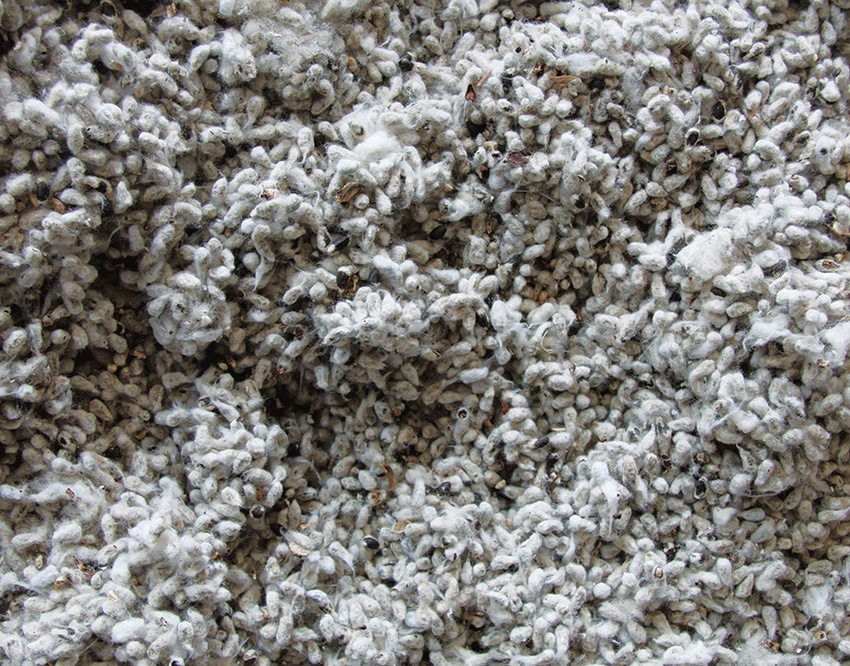Cotton crop is expected to be smaller than the previous season.
December 9, 2020

According to the U.S. Department of Agriculture’s October cotton and wool outlook report, cotton production is estimated at 17.0 million bales, a 14% decrease from last year. Whole cottonseed supply for feed is estimated to be roughly 600,000 tons less than last season.
“This year, producers will have 3.3 million tons of whole cottonseed available to incorporate in their feed,” explains Tom Wedegaertner, director of cottonseed research, Cotton Incorporated. “Although less than last year, whole cottonseed is an excellent feed ingredient to meet the nutritional demands of lactating cows and has the potential to reduce the overall number of feedstuffs in a ration.”
U.S. upland cotton production is forecasted to be down in each region of the Cotton Belt compared to the previous season. The majority of the whole cottonseed supply goes to dairy rations but beef producers have opportunities to use the feed ingredient on their operations, taking advantage of its effective fiber, available fat and protein.1
“There is more late-season uncertainty this year for cotton quality and supply compared to last season,” notes John R.C. Robinson, Texas A&M University professor and Extension specialist economist. “Weather can play a major role in crop quality and the Cotton Belt has experienced variability with tropical storms in the eastern region and dry conditions in the west. Time will tell what impacts these conditions will have on final numbers and quality.”
As harvest wraps up, producers should make a plan for their feed ingredients and keep an eye on the market. Wedegaertner recommends producers book their cottonseed needs early, working with reputable merchants and suppliers.
“Cottonseed prices are following other commodity proteins that continue to strengthen,” Wedegaertner adds. “With indications that prices can continue to rise in addition to a smaller crop, now is a good time for producers to check in with their merchants to guarantee cottonseed in their upcoming rations.”
Cotton Incorporated suggests producers get in touch with their cottonseed merchant or feed dealer to check prices or submit a request for cottonseed quotes through its Cottonseed Marketplace.
Cottonseed is an excellent source of fiber, protein and energy for both dairy and beef cattle. Typical dairy rations can include up to 15% cottonseed on a dry matter basis.2 Additionally, whole cottonseed can be economically beneficial in feedlots, reducing the need for traditional roughages and additional protein and fat supplementation.3 For more information, including reports on market conditions, feeding information and a list of suppliers, visit wholecottonseed.com.
Cotton Incorporated, funded by U.S. growers of upland cotton and importers of cotton and cotton textile products, is the research and marketing company representing upland cotton. The program is designed and operated to improve the demand for and profitability of cotton.
1Warner, A. L., Beck, P. A., Foote, A. P., Pierce, K. N., Robison, C. A., Hubbell, D. S., & Wilson, B. K. (2020). Effects of utilizing cotton byproducts in a finishing diet on beef cattle performance, carcass traits, fecal characteristics, and plasma metabolites. J. Anim. Sci., 98(2). doi: 10.1093/jas/skaa038
2Coppock, C., West, J., Moya, J., Nave, D., Labore, J., Thompson, K., … Gates, C. (1985). Effects of Amount of Whole Cottonseed on Intake, Digestibility, and Physiological Responses of Dairy Cows. J. Dairy Sci., 68(9), 2248–2258. doi: 10.3168/jds.s0022-0302(85)81097-3
3Cranston, J. J., J. D. Rivera, M. L. Galyean, M. M. Brashears, J. C. Brooks, C. E. Markham, L. J. McBeth, and C. R. Krehbiel. 2006. Effects of feeding whole cottonseed and cottonseed products on performance and carcass characteristics of finishing beef cattle. J. Anim. Sci., 84:2186–2199. doi:10.2527/ jas.2005-669
You May Also Like



